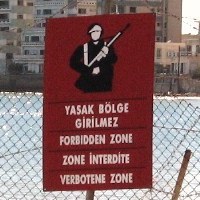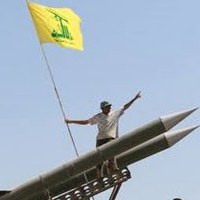![]()
Tue, Sept 07, 2010 | The Rubin Report | By Barry Rubin
Two Issues: The War Within Islam + Israel and Islamism
Two readers asked me questions well worth answering. The first asked whether Islam itself isn’t the enemy; the second, how these distinctions appear from an Israeli standpoint.
Regarding the first question, I would stress that “Islam” as a religion functioning in the world is not at war with anyone as such. There are those who want to steer Islam toward an active war against how the majority of Muslims live at present and almost all the governments ruling them, using valid quotations and interpretations. And there are those who oppose them, including most of those governments, also using valid quotations and interpretations of Islam.
Western leaders’ and media’s mistake is not that they aren’t “anti-Islam” or that they are “pro-Islam” but that they don’t understand fully this conflict happening among Muslims, the contending forces, the stakes, and the nature of the struggle. Thus, dire Islamist enemies are often misjudged as friends merely because they aren’t violent at present or because they say soothing words to Western audiences, while genuinely moderate Muslims are shunned as “inauthentic” merely because they disagree with the radicals.
Once again, the enemy is not Islam but those Muslims who, so to speak, want to make Islam an enemy by waging war on others–including other Muslims–through propaganda, organization, violence, and most importantly the seizure of state power to install a totalitarian regime and wage war on everyone else, including non-Islamist Muslim governments. Whether or not these specific groups are violent at any particular place or moment is less important than the goals they are striving to achieve with all the strategies and tactics at their command.
The battle against the West or against Israel is generally smaller than the battle among Muslims for control over interpreting Islam and over political power. Most notably:
–Civil war in Algeria with tens of thousands of Muslims killed, injured, and tortured by Islamists and also the government side.
–A smaller civil war in Egypt, mainly in the 1990s, with hundreds dead and a president assassinated.
–A bloody civil war in Iraq in which Islamist Sunnis use terror against Shias, Kurdish Sunni Muslims, and Christians, as well as Westerners there. Sometimes Islamists among the Shia struggle for power within that community and over control of the state.
–A low-level insurrection in Saudi Arabia which has claimed scores of lives along with an internal war in Yemen.
–The post-revolutionary repression in Iran, reaching a peak with the stolen election and regime violence last year.
–The rivalry between Hamas and Fatah among Palestinians, with the former group conquering the Gaza Strip.
–The battle over Lebanon between Hizballah—backed by Iran and Syria–and non-Islamist Sunni, Christian, and Druze communities.
–The bloody fighting and conflict in Pakistan and Afghanistan which has devastated large parts of both countries and causedt many deaths and much misery.
–The less visible but nonetheless important battle by Islamists to control Muslim communities in Europe and North America, sadly with the governments of those countries often ignorantly helping the Islamist side.
And more examples could be cited in terms of violence as well as heated debate and competition, extending all the way to Indonesia. How many Muslims have died in this fighting? One might even include the Iran-Iraq war as a manifestation, at least in part, of this struggle. Surely, even excluding that war, we are talking about several hundred thousand Muslim dead, a huge multiple of the number killed in the Arab-Israeli conflict and over a much shorter time period.
The imam of the “ground zero” mosque project told an audience that the West had more Muslim blood on its hands than Muslims had killed innocent Westerners. Note the use of the word “innocent” to the latter group while not to the former. In other words, if a Western soldier kills a Taliban in Afghanistan or Sunni insurgent terrorist in Iraq in self-defense that is equivalent to terrorists deliberately killing civilians on September 11 or in the London subway.
But leave that aside. If he, or others who fake their stances, were even close to being moderates they would first denounce the revolutionary Islamists murdering Muslims. If they don’t take sides in their own internal struggles–and choose the non-totalitarian side in that struggle–why should one expect them to be moderate in their behavior toward the West?
What is going on, therefore, should not be defined mainly as a Muslim battle against the West (that’s the revolutionary Islamists’ narrative) but as a struggle among Muslims as to who should lead ad define their countries, societies, and religion. To a large extent, the real conflict with the West—or even with Israel—would only come after the Islamists have conquered the other Muslims and subordinated them to Islamist dictatorships. This is the stage we hope will never arrive.
That is why anyone who takes sides with those–moderates, nationalists, traditionalists–who oppose the revolutionary Islamists is doing something good for Muslims as a whole. And those who take sides either explicitly or objectively with the revolutionary Islamists is acting in a more “Muslimphobic” way than anyone who critiques Islam’s extremist elements.
“Muslimophobic” is a good word, though I had to coin it. That means wanting to force a terrible dictatorship on Muslim people, to rationalize repressive dictatorships that already rule over them, and to rationalize revolutionary groups that engage in murder and aspire to engage in endless war and genocide. A leader who, for example, didn’t condemn the stolen election and heightened repression in Iran last year is acting in a “Muslimophobic” manner since such policies injure millions of Muslims. Western governments that won’t work hard to weaken and overthrow the Hamas regime in the Gaza Strip are doing something “Muslimophobic” to its victims there.
The best thing one can do for Muslims and for Islam is to help win the war against revolutionary Islamism as quickly and effectively as possible, just as the best thing one could do for the Germans, Italians, and Japanese during World War Two, or those who dwelt in the Soviet bloc during the Cold War, was to defeat those ruling regimes and ideologies.
Similarly, not all liberals or socialists were Communists, nor all conservatives or nationalists actual fascists. One has to define the enemy and that usually means someone who wants to kill and destroy you, to repress and enslave, whether or not they are trying to do it at this exact moment or merely waiting until they feel strong enough to win.
Thus, the enemy is not “Islam” but those particular Muslims and their supporters who want to have a monopoly on defining Islam, kill any Muslims who disagree, impose terrible dictatorships over Muslims, unite Muslims to wage war on everyone else, set back social and economic progress in Muslim majority countries by a century or more, and plunge the world into decades of horror and bloodshed.
On the second question, definitions of Islam and Islamism, the question of moderate and of traditionalist Islam are all-important from an Israeli viewpoint. Let me put it briefly and simply. There is a distinction between those who hate us and don’t intend to do much about it–even if that means they will attack us with words, not make peace, and even give money sometimes to the latter group–and those who hate us and are going to try to kill us actively even if it involves a high level of risk for them.
We can manage the former; we have to fight the latter. Muslims and Arabs in general, even most Arab nationalists, and all Arab regimes except for Syria (which has cynically but cleverly joined the Islamist cause, the Gaza Strip (ruled by an Islamist regime), and wacky Libya are in the former category. So are most Arab citizens of Israel.
The latter category includes Hamas, Hizballah, Iran, Syria, Muslim Brotherhoods, and Libya. We must work to minimize their power and to ensure that revolutionary Islamists don’t take over even more countries which can then be used as bases to attack Israel through a range of ways and also intimidate other Arab regimes and the West into passivity.
An Israeli, as opposed to most Jews in Galut (exile from Israel) or if you prefer Diaspora (dispersion from Israel) understands this. What’s important is not whether people hate us but what are they going to do about it and whether their actions pose a direct material threat. To Jews in Galut hatred in itself is a high level of threat because they cannot defend themselves and are dependent on the good opinion and protection of non-Jewish neighbors. Hate speech is equivalent to a major threat. For Israel, talk is talk.
Or as an Israeli going to go to Morocco on business replied, when asked if she wasn’t afraid to go to a country where people hate Israel, shrugged and said nonchalantly, “They hate us everywhere. So what?”
You should not get from that a disinterest in public diplomacy or hasbara (though Israelis are definitely less obsessed with that than Galut Jews and they should be), but an understanding that in any discussion between material reality and words the former must have the greater weight. Or as Golda Meir put it, “Better a bad press than a good epitaph.”
So these things do matter. Revolutionary (or radical or just plain) Islamists are a threat. Ordinary Muslims or secularized Muslims or moderate Muslims or conservative traditionalist Muslims or Arab nationalists (nowadays, not in the past) are far less of a threat.
If, for example, the Muslim Brotherhood takes over Egypt, turns it into a new Iran, act in a militantly anti-American and anti-Western way, launches massive repression, and starts a war on Israel, who cares whether they won by election or were previously nonviolent for some decades?
About the author,
Barry Rubin is director of the Global Research in International Affairs (GLORIA) Center and editor of the Middle East Review of International Affairs (MERIA) Journal. His latest books are The Israel-Arab Reader (seventh edition), The Long War for Freedom: The Arab Struggle for Democracy in the Middle East (Wiley), and The Truth About Syria (Palgrave-Macmillan). For the website of the GLORIA Center go here and for his blog, Rubin Reports, go here.



 RSS
RSS











Israel, Islamism and the War Within Islam #israel #islam http://j.mp/cLb8yO
RT @CrethiPlethi: Israel, Islamism and the War Within Islam #israel #islam http://j.mp/cLb8yO
#Israel, Islamism and the War Within #Islam http://j.mp/gh6tvN